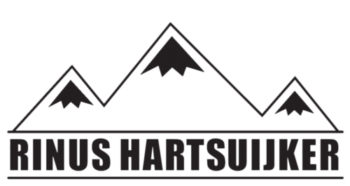The Overland A2Q
Answers to questions we get about car maintenance, which spares to bring, fuel economy, sponsoring, how to get out of North-East Africa, travel budgets and third party insurance.
How do you maintain your car?
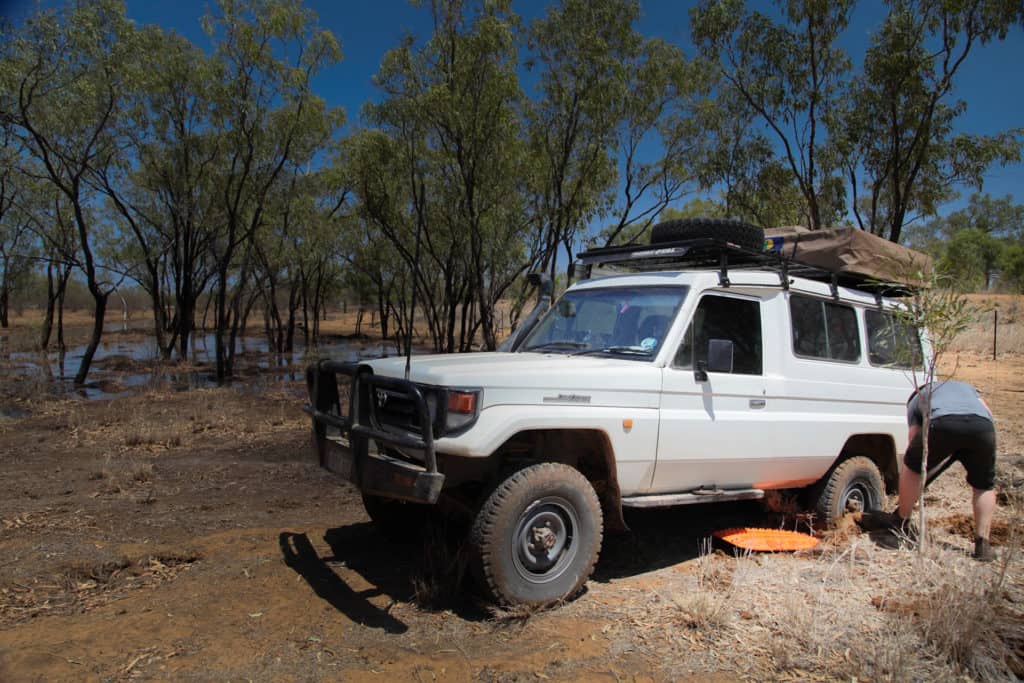
First step: before talking about maintenance it is important to know how to use the vehicle beforeyou use it. By knowing the limits of your vehicle and how to adjust it to the right road conditions at the right time (speed, tire pressure, 4×4 settings, reading the track ahead), you will avoid a lot of unnecessary damage. A 4×4 course might be a useful, rewarding investment when you plan to drive to remote places. By walking around the car on a regular basis checking bolts and nuts and checking for sounds while driving, you are more likely to recognize and locate issues in an earlier stage. To keep maintenance easy, prevent corrosion and stop filters from getting rusty and stuck, remove/replace them frequently and rinse your car from top to bottom with fresh water after it has been in contact with salt water.
We service the car by doing an oil change, including filter roughly every 5k. The recommendations on this topic vary a little, but my experience is that you’re good as long as you stay within the ratio of 5-10K. I grease the car on a slightly more regular basis than that I change the oil, just like the air filter. I check and clean the air filter, depending on the road conditions and things like dust, sand, water, salt. You do this by removing the filter and blowing air into it from the inside to the outside with a compressor. As soon as you see that the amount of dust leaving the filter diminishes, you can fit the filter back in its position. Fuel filters we change around 35K. Fuel filters can go much longer though, especially running a dual filter system. In Africa we found they are only being changed when experiencing problems. Problems vary from difficulties with starting to white smoke. Wheel bearings will easily last you up to 100.000 km, so keep this in mind and change those before going on a big trip! Tire rotation is a useful thing to do if you like your tires to last.
You will save costs by doing all of this yourself, but when doing this make sure that every drop of oil spilt or not disposed of in the right way will pollute 100 liters of water! So, please dispose wisely.
Which spares and tools to bring?
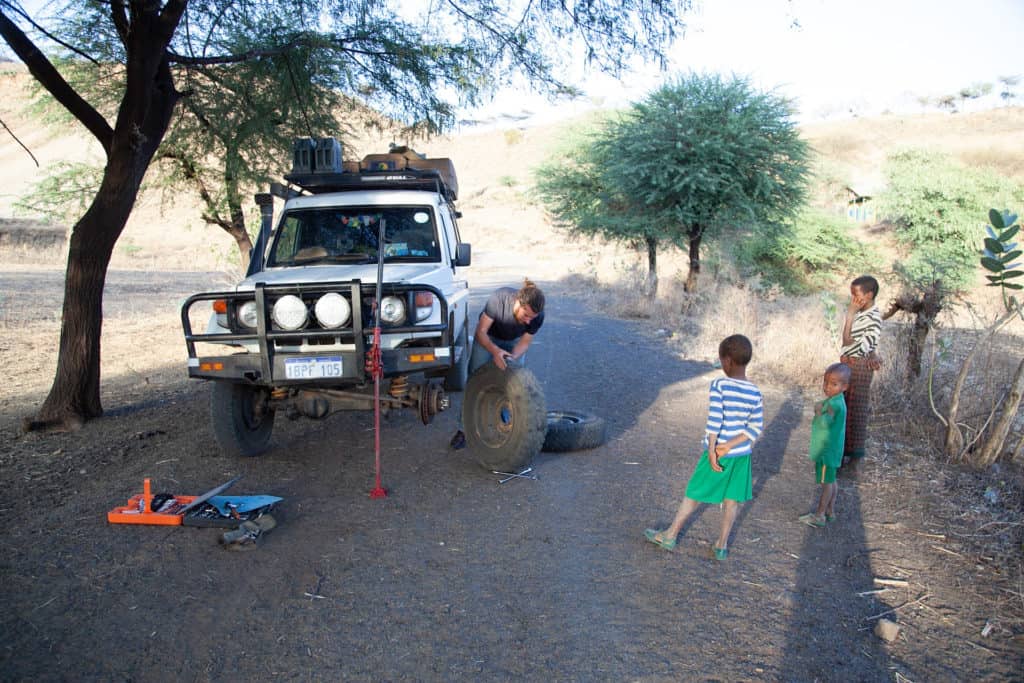
When thinking about which spares and tools to bring, remember the urge to over-pack is strong! On a big travel you will always find people who are willing to help. Through trial and error, these are the spares and tools that we would bring on a long trip (specified for our 78 series Land cruiser)
Spares:
Belt kit, replace bearing kit, full radiator hoses and heater kit, oil filter, fuel filters (working with a duel filter system), air filter, 1 liter of engine oil,1 liter of gearbox oil, 1 liter diff oil, fuses, lightbulbs (for all lights). When running tubes: inner tube (and repair set).
Tools:
Full wrench and socket kit (including the size for your wheel nuts), long arm flexible handle or sliding T bar with long extension, bottle jack, hi-lift jack (make sure you have proper jacking points fitted), small kit with screwdrivers and pliers, long tire levers (for split rims), duck tape/electrical tape, small hand size grease gun, cable ties, hose clamps (different sizes)
What is your fuel economy?
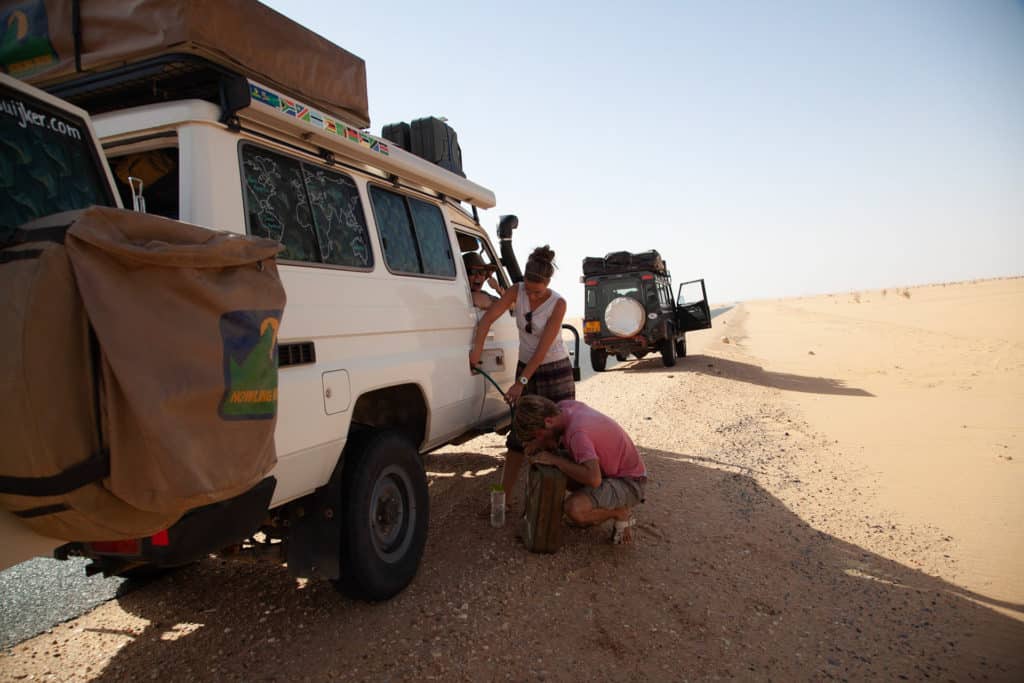
All throughout our travels we’ve been keeping a close eye on our fuel consumption. It obviously depends on whether we’ve been 4wding or driving on tarmac, but our average is: between 1L : 7-8 KM // 13L : 100KM
How to get sponsored?
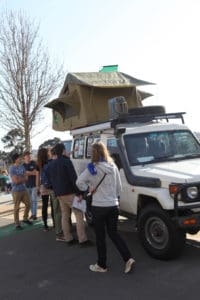
Occasionally we receive questions about how to get sponsors or how to gain or work with sponsors.
The truth is that working with and finding support is pretty tough. I don’t have the key for succes. You’ll need to look at yourself and what it is you’re doing and ask how could this would benefit a potential sponsor. Start with doing research on a potential brand, see how their marketing is done and come up with a plan how working with you could benefit this brand. Knowing people helps! Look around you ,friends are almost more willing to help. Pitch your plan, review your ideas and try to get them and their network to help. Work hard, follow up and don’t give up!
We have been lucky enough to have had support from some amazing brands over the years. This resume helps. You are the commodity. While traveling you are the brand. Work on your social media, get published and keep working on building a strong identity which you’re not afraid to put out there.
For instance: “I started documenting travels in 2010, I’m active on social media and control different social media channels, I am a photographer, worked with some known brands, have been published in national and international press, keep a well maintained up to date website, I work as an ambassador for respected brands while being on a unique overland travel people dream of, but don’t often undertake”.
What I’m saying is that you’ll have to big yourself up and believe in what you’re doing. Your drive should be your love and passion for what you’re doing, if you’re on the right track succes will be the after effect.
How to get out of North Africa when following the East Coast up?
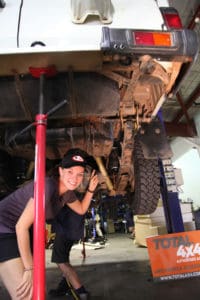
When you follow the East Coast of Africa and go north, you will probably end up in Egypt. And then what…. Nowadays, there are not a lot of options to get out of this vast continent and we have tried to explore all options thoroughly.
Terms explained:
POD = Port Of Destination
POL = Port Of Loading
THC = Terminal Handling Charges
1. Shipping RoRo from Egypt. Which means getting our car on a carrier vessel sailing from Alexandria to Greece or Cyprus. Shipping companies are either Grimaldi or Neptune and usually overlanders use CFS as their agent. They are expensive, but tend to have the most hassle free results as far as we know. Passengers are not allowed to board roro vessel from Alexandria.
Pros: quick, fairly simple
Cons: expensive, unsafe, no control over loading and discharging process. You cannot board on this vessel and will have to fly from Cairo to the destination of choice. When shipping to Cyprus, the ferry to Turkey needs to be added to the costs.
Freight Grimaldi USD 300,- (booked directly with Grimaldi and not through CFS)
THC Egypt USD 90,-
Customs and handeling CFS USD 600,-
Total Price: USD 990,-
2. Crossing the Sinai desert from Egypt to Israel and ship from Israel RoRo to Salerno, Italy with Grimaldi. Passengers are allowed to board roro vessel. (check if your Green Card Insurance covers Israel!)
Pros: quick, simple (to leave Israel) and you can join the car on the vessel.
Cons: expensive and getting a permit to cross the Sinai with a 4×4 is uncertain and a long process.
Freight Grimaldi USD 625,-
THC USD 30 ,-
Customs and handeling USD 350,-
Total Price: USD 1005,-.
( + 2 Passengers on vessel. USD 395,- )
3. Shipping in a container from any port in Egypt to Turkey, Greece, Cyprus or Italy. Price will depend on port of destination and choice of container. Option 1: 20ft Container fits one car, Option 2: 40ft container, will fit 2, Option 3: 40ft High cube, will fit most 4×4 with rooftop tent on the roof.
Pros: Cheap, safe and wide choice in destinations
Cons: complicated and time consuming process
Freight 40ft dry HC USD 450,-
POL THC including: customs and handeling USD 350,-
POD THC USD 250,-
POD handling, USD 190,-
POD Custom clearance USD 150,-
(Cost of arriving port will vary.)
Total Price: USD 1390,-
(POD prices are based on shipping to Mersin, Turkey.)
In the end we chose option nr. 3. We met fellow travellers in Tanzania who we kept in touch with and later on we traveled Ethiopia, Sudan and Egypt together. We decided to ship our cars together in a 40 ft High Cube container from Damietta, Egypt to Mersin, Turkey.
We chose Damietta because the harbour is smaller and a little less bureaucratic than the other Egyptian ports and Mersin so we could travel most of Turkey still.
For us it has been a challenge finding the right people in the right positions and we experienced a big language barrier, especially in Turkey. Know that shipping in a container can be an adventure in itself!
! Please, don’t take these prices for granted, they are just meant to be a rough guideline to assist you on your way to Europe. Before shipping make sure you receive all the prices and costs in advance and have these confirmed by mail by your agent. This information and these shipping terms might help you prepare and avoid additional costs !
If you have shipped on this route yourself and you have an addition to the costs we published please send them to us so we can keep information as correct and up to date as possible.
What is your budget?
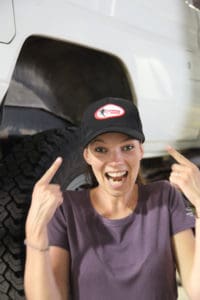
We often get the question how much it will cost to travel for such a long time. Usually overland travellers will budget around 50 euros a day for two people and a car through Africa.
These costs include: fuel, accommodation, visas, car maintenance, groceries, car insurance, sim cards/internet.
These costs exclude: shipping, buying and equipping a vehicle, health care, travel insurance.
We usually spend between 35 and 40 euros a day for two people. Some countries are obviously more expensive than others and we travelled more on a budget than most overlanders.
Some good information about budgets and traveling through Africa:
http://norbertsadventures.com/preparations/budget/
How about Insurance?
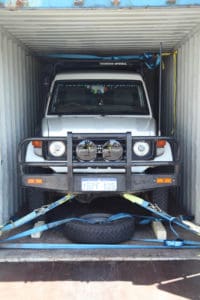
South and East Africa + Europe:
In most countries you need a third party insurance at least. There are two ways to go when traveling through Africa and Europe:
get an insurance that covers you for all the countries in Africa/Europe
Buy insurance at the border.
Option 1 can be arranged by Alessie. (http://alessie.com/index.htm)
Africa/Europe 8 months: € 994,-
Africa/Europe 7 months: € 889,-
Africa 5 months: € 679,-
Europe 2 months: € 364,-
(quoted to us by Alessie July 2015 for a 2001 Toyota Landcruiser)
Option 2 is definitely the cheaper one.
Africa:
Most countries in the Southern part of Africa sell third party insurance at the border.
By the time you get to Zimbabwe or Zambia there is the option to buy a Comesa Yellow Card insurance. It works the same as the Green Card in Europe and it covers you all the way up to Sudan. We got our Yellow Card in Zambia and it works as follows:
You get your third party insurance for Zambia at the border. You then have to go the insurance company that sold you the third party insurance to be able to get the Comesa Insurance.
Your Comesa will start in the next country and works on top of your Zambian insurance, so you will have to extend your Zambian insurance for the period you want your Comesa.
There is a price difference up till 4 countries I believe, after that it is all the same price, so thick as many boxes as you possibly intend of driving through.
And yes, it says that it is valid in Egypt, but no, they will probably not accept it at the border…..
Turkey:
If you are traveling with a non European car like us, you will either have to have a Green Card insurance (including the Asian part of Turkey) or buy a separate third party insurance for Turkey.
Green Card for non European car: cheapest offer we found was with Tourinsure who quoted us 295 euros for 2 months. Turkish third party insurance: 70 euros for one month.
Europe:
When driving from Turkey to Bulgaria you can buy Green Card Insurance at the border: 70 euros for 3 months.
